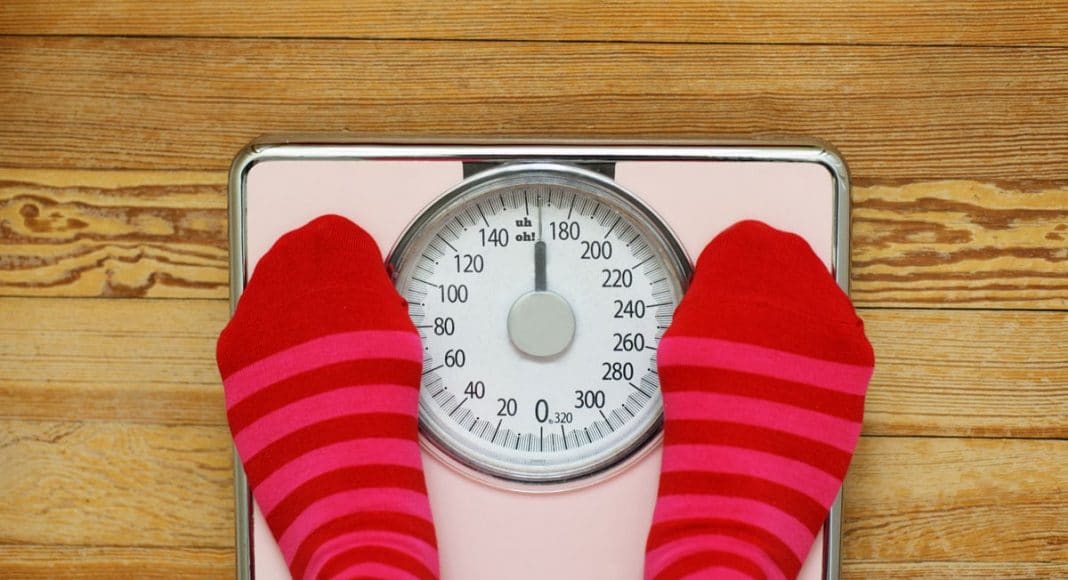Studies show marijuana users are less likely than non-users to develop metabolic syndrome, which makes it difficult to lose weight.
Spring is here and summer is around the corner. As we scroll Instagram and TicTok, we are already seeing beautiful bodies on a boat, be a pool or lounging on the beach. While the concept of sexy bodies are involving (think Lizzo and Peter Davidson), most American carry a something extra that doesn’t make baring the body comfortable. Can cannabis help get ready for swimsuit season? Well, according to a study published in the American Journal of Medicine, marijuana users are less likely than non-users to develop metabolic syndrome, which is a significant risk factor for obesity, type II diabetes, and heart disease.
Conducted by scientists at the University of Miami in Florida, this study examined the relationship between cannabis consumption and the individual components of metabolic syndrome, such as high blood pressure, increased abdominal fat, elevated blood sugar, and unhealthy cholesterol levels.
Nearly 8,500 people from age 20 to 59 provided survey data for the study. Participants were separated into three categories—current marijuana users, past users, and those who had never smoked the herb. Whereas metabolic syndrome afflicts 22 percent of the U.S. adult population, less than 14 percent of current cannabis-using adults in this study had metabolic syndrome.
Related: How I Lost 50 Pounds Using Marijuana
Among young adults, cannabis consumers are 54 percent less likely than non-consumers to present with metabolic syndrome. Past marijuana use is associated with lower odds of metabolic syndrome among middle-aged adults. And seniors who medicate with cannabis tend to be slimmer and less insulin-resistant than seniors who just say no.
The Munchies Receptor
The results of the study, entitled “Metabolic Syndrome among Marijuana Users in the United States,” may seem counterintuitive given marijuana’s notorious appetite-stimulating effects, jocularly known as “the munchies.” Under the influence of marijuana, flavors seem to jump right out of food. That’s because tetrahydrocannabinol (THC) activates CB1 cannabinoid receptors in the brain that rouse one’s appetite and heighten one’s sense of smell.
The munchies are a scientifically proven phenomenon. THC is a CB1 “agonist” that turns on the appetite receptor and causes it to signal. An “antagonist” will block the receptor and prevent it from signaling. Tetrahydrocannabivarin (THCV), a minor but medically significant component of the cannabis plant, is a neutral CB1 receptor antagonist.
Scientists have also synthesized “inverse agonists” that can activate a cannabinoid receptor and cause it to signal in the opposite manner from how it functions naturally. A CB1 inverse agonist will curb appetite and reduce food intake by binding to CB1 receptors, whereas THC boosts appetite and food intake by binding to CB1.
RELATED: 4 Terrific Ways Marijuana Can Help You In The Gym
One could reasonably assume, given what we know about the munchies, that increased use of marijuana will result in greater caloric consumption with consequent adverse metabolic outcomes, including obesity. However, the results of this study and other reports indicate that such is not the case. Indeed, the opposite appears to be true.
In addition to underscoring potential health benefits of herbal cannabis, these findings highlight the discrepancy between human research that links marijuana use to lower rates of obesity compared to preclinical studies involving synthetic isolates in which CB1 antagonism (blocking the munchies receptor) and CB1 inverse agonism (flipping the anti-munchies switch) are shown to prevent obesity.
How is it possible that marijuana consumption, which activates CB1, is associated with preventing obesity in humans, while blocking or reversing the CB1 receptor via a synthetic, single-molecule compound results in weight-loss in animal models and human trials? What can explain this apparent contradiction? It may have something to do with the complementary, yet opposing functions of two different sets of cannabinoid receptors.
CB2 Receptor Activation
Australian scientists recently examined the role of the cannabinoid CB2 receptor “in modulating energy homeostasis and obesity-associated metabolic pathologies.” The CB2 receptors are concentrated in the peripheral nervous system, immune cells, and in metabolically active tissue. The Australian researchers found that CB2 receptor activation by JWH-015, a “selective CB2 receptor agonist,” reduces food intake in mice and prevents the build-up of body fat.
THC, a non-selective, plant-derived agonist, binds to both the CB1 receptor and the CB2 receptor. The fact that THC and other cannabis components (including the aforementioned THCV) activate CB2 receptor signaling may explain why marijuana users are less likely to develop metabolic syndrome than marijuana abstainers. Metabolic syndrome is a generalized, low-grade inflammatory condition, and the THC-sensitive CB2 receptor regulates immune function and inflammation.
CB2 receptor activation—through healthy diet and cannabis-enabled stress reduction—may prove to be a better strategy for preventing and treating metabolic syndrome than the misguided attempt by French pharmaceutical giant Sanofi-Aventis to market Rimonabant, a synthetic CB1 inverse agonist as an appetite suppressant. Promoted as a blockbuster diet drug in 2006, Rimonabant was soon recalled in Europe because of severe side effects, including neurological deficits, depression, and suicide. The anti-munchies pill was never approved for sale in the United States.
This is a long way of saying, maybe have less calorie filled beer or overly sugary cocktails for a vape or an oil if you want to be beach ready.


